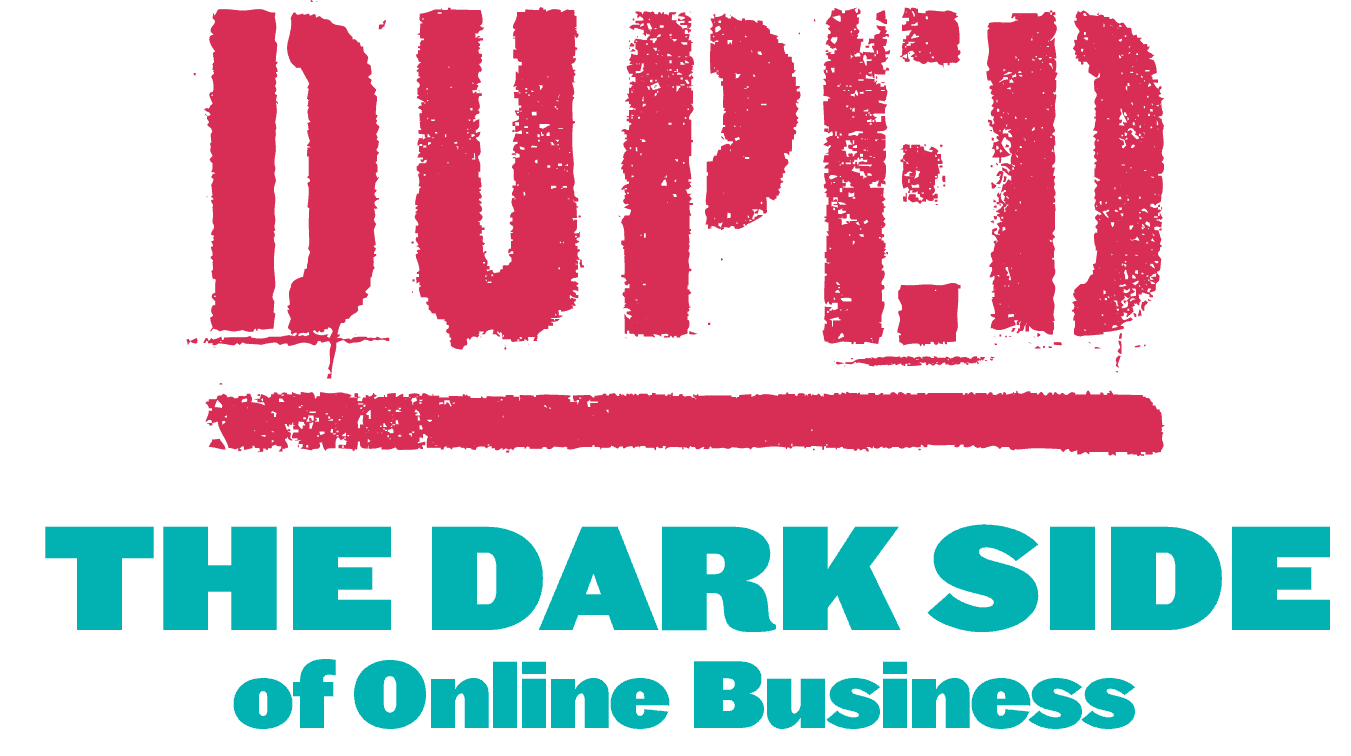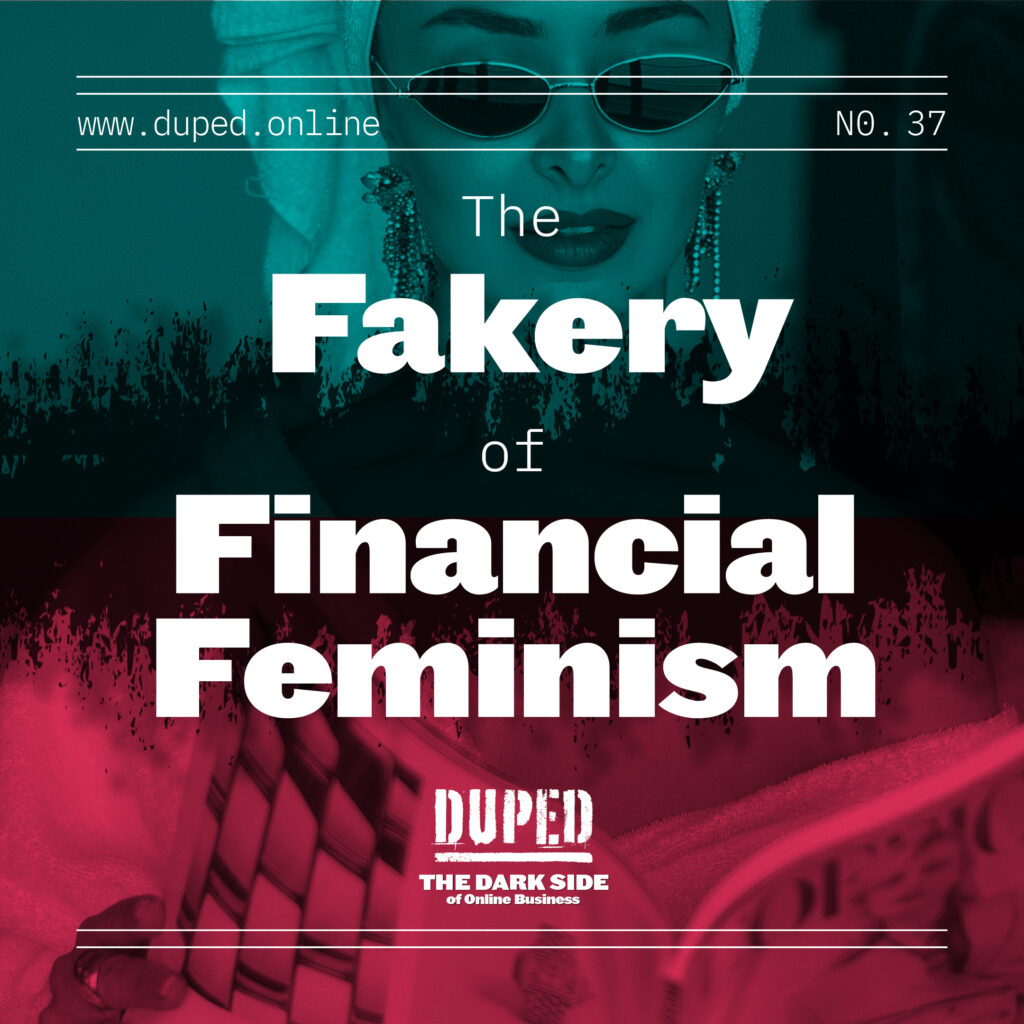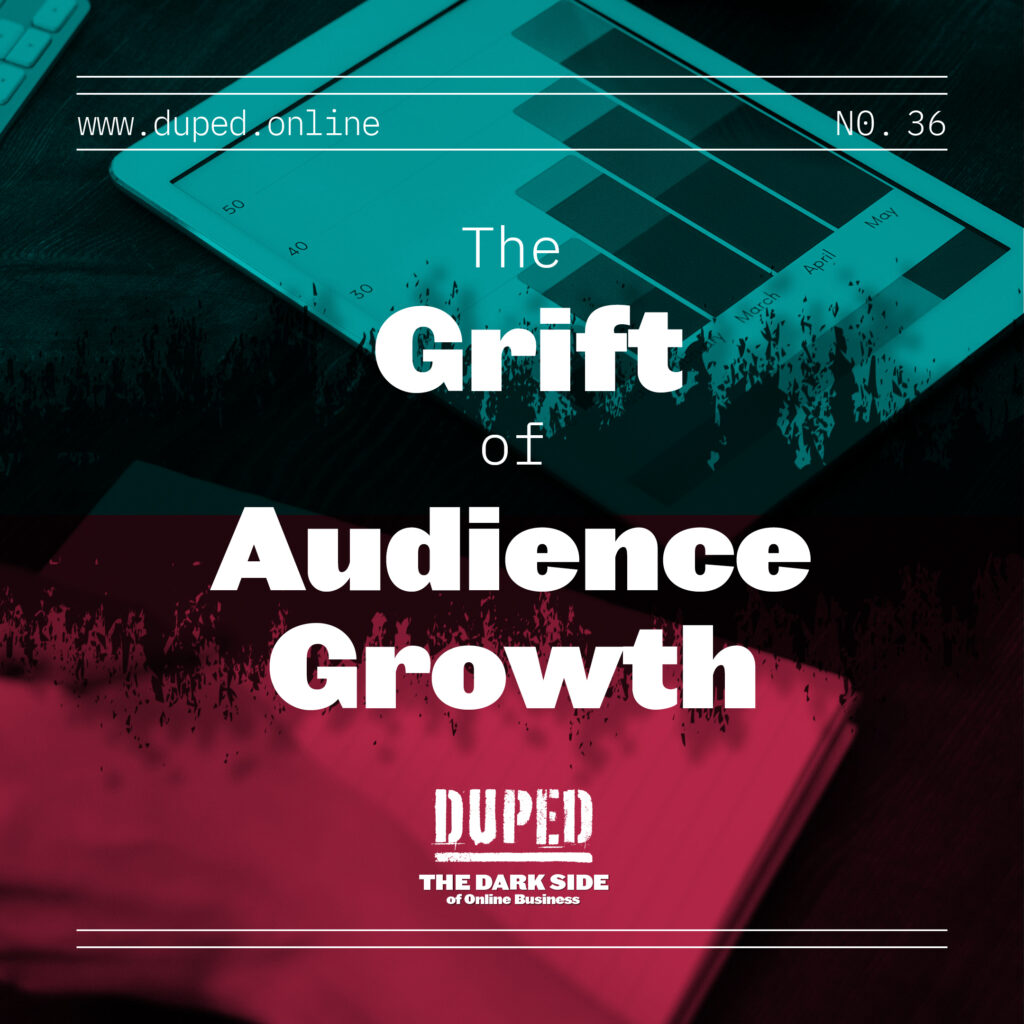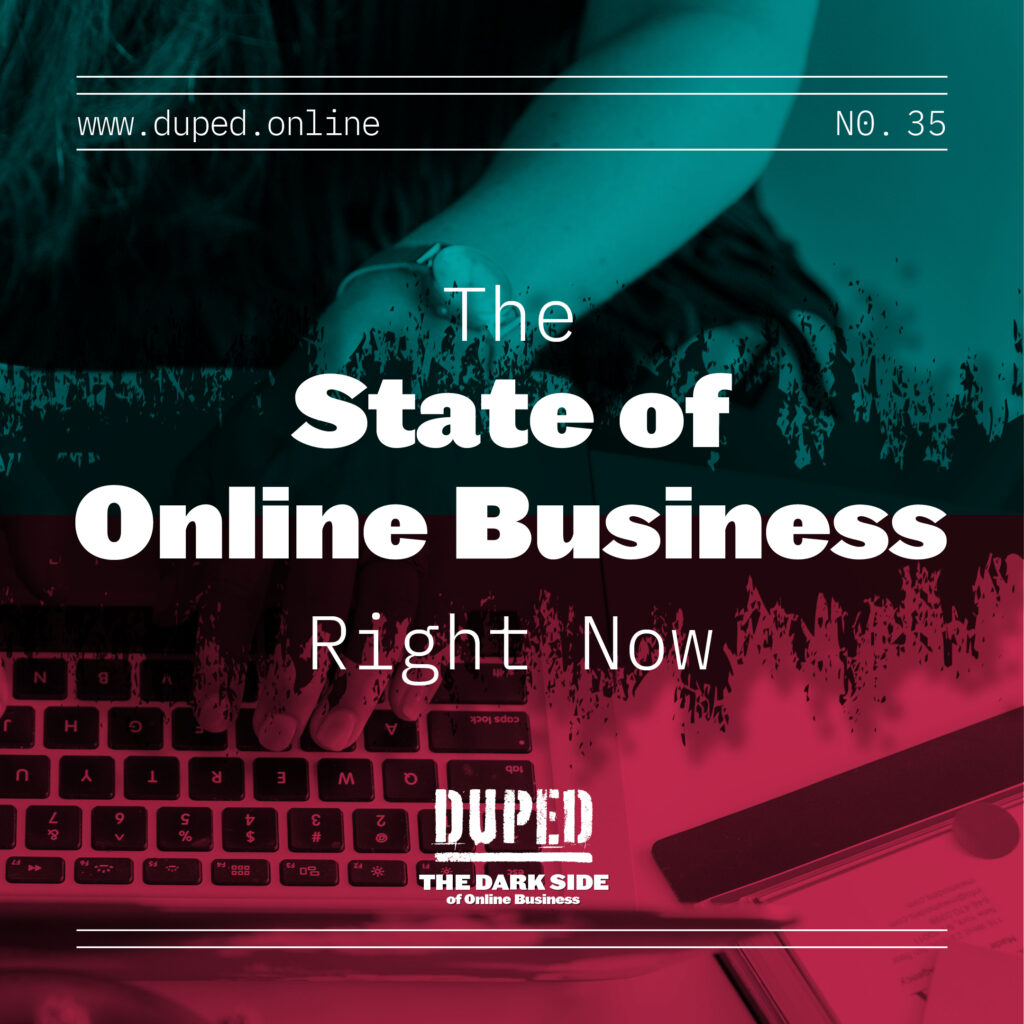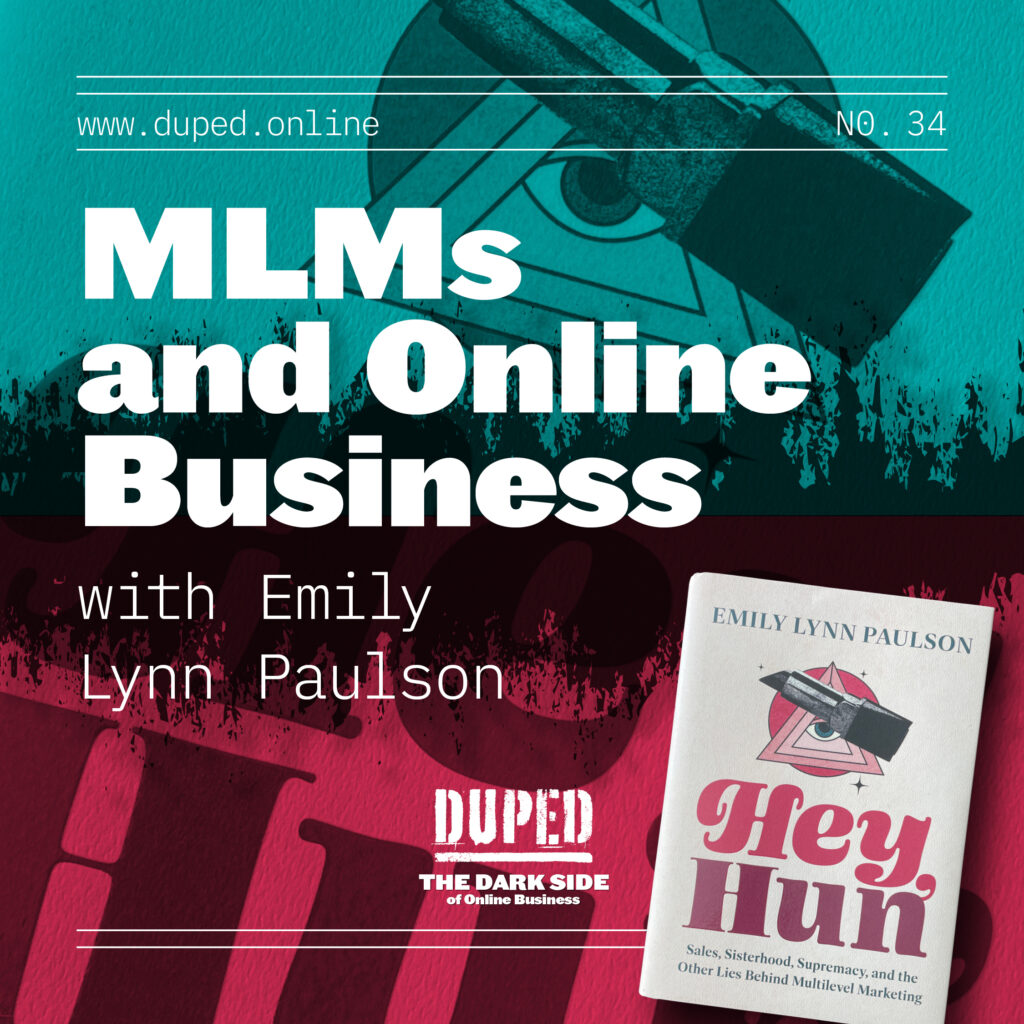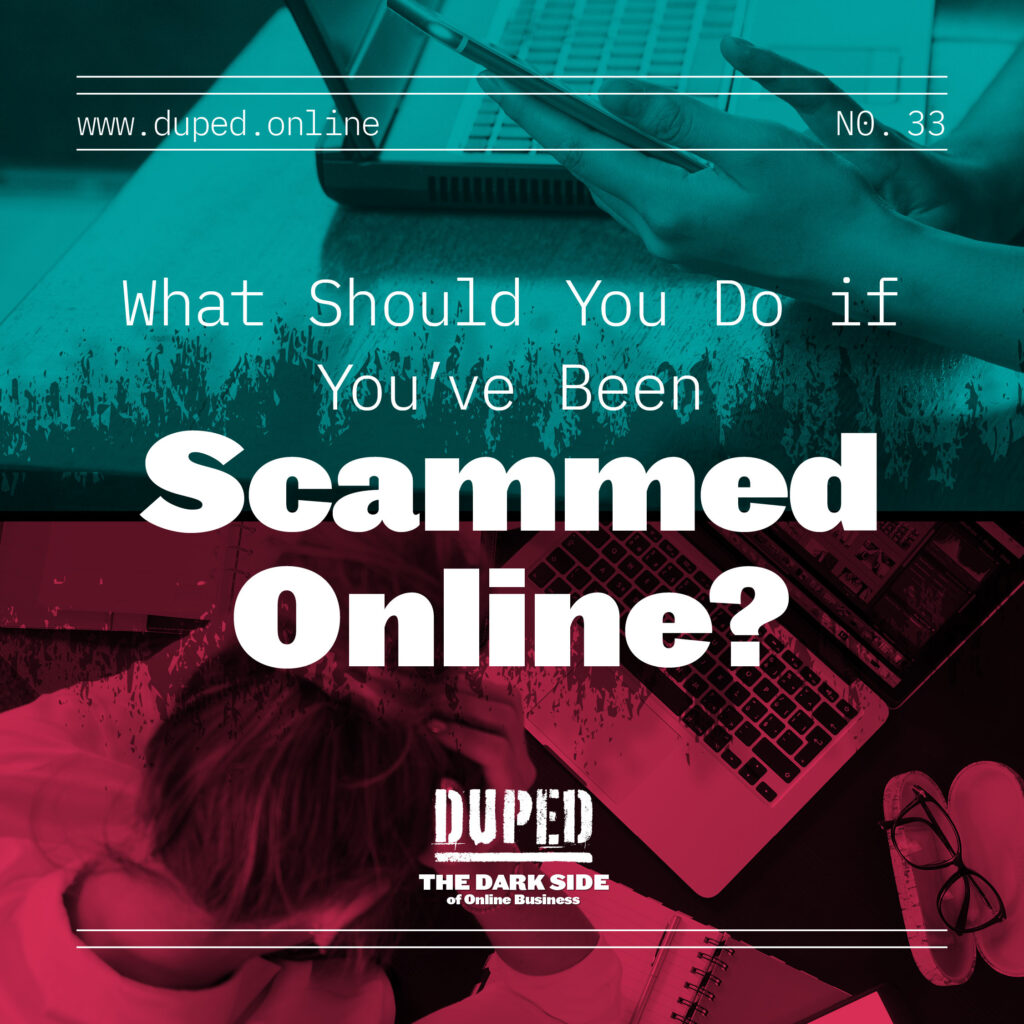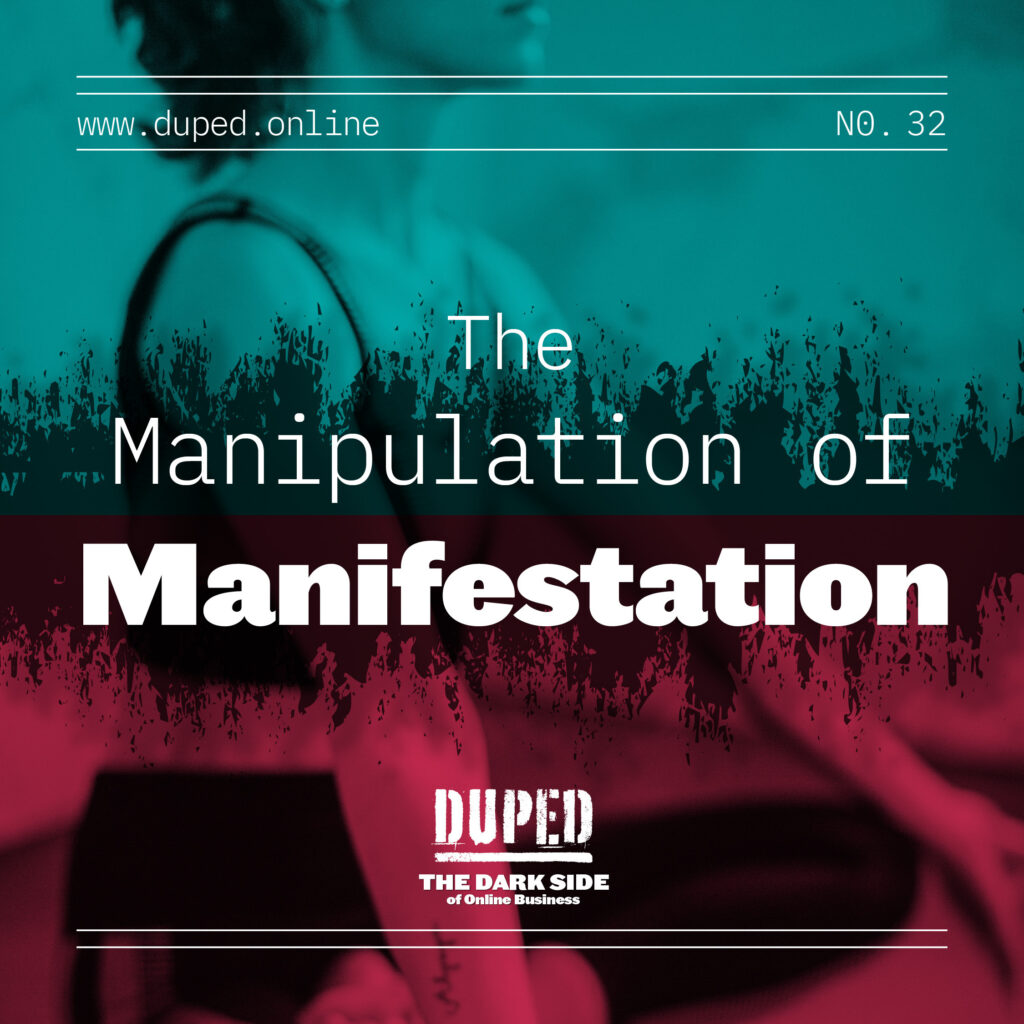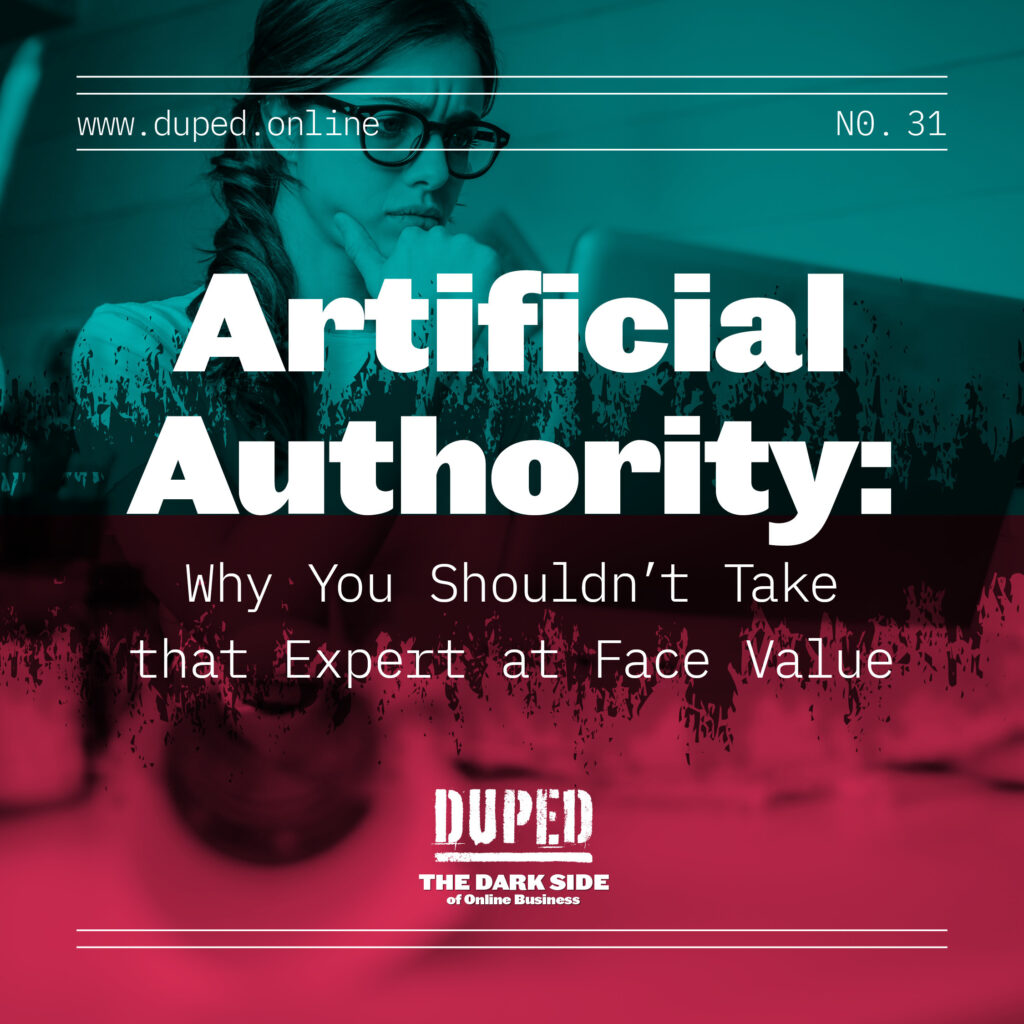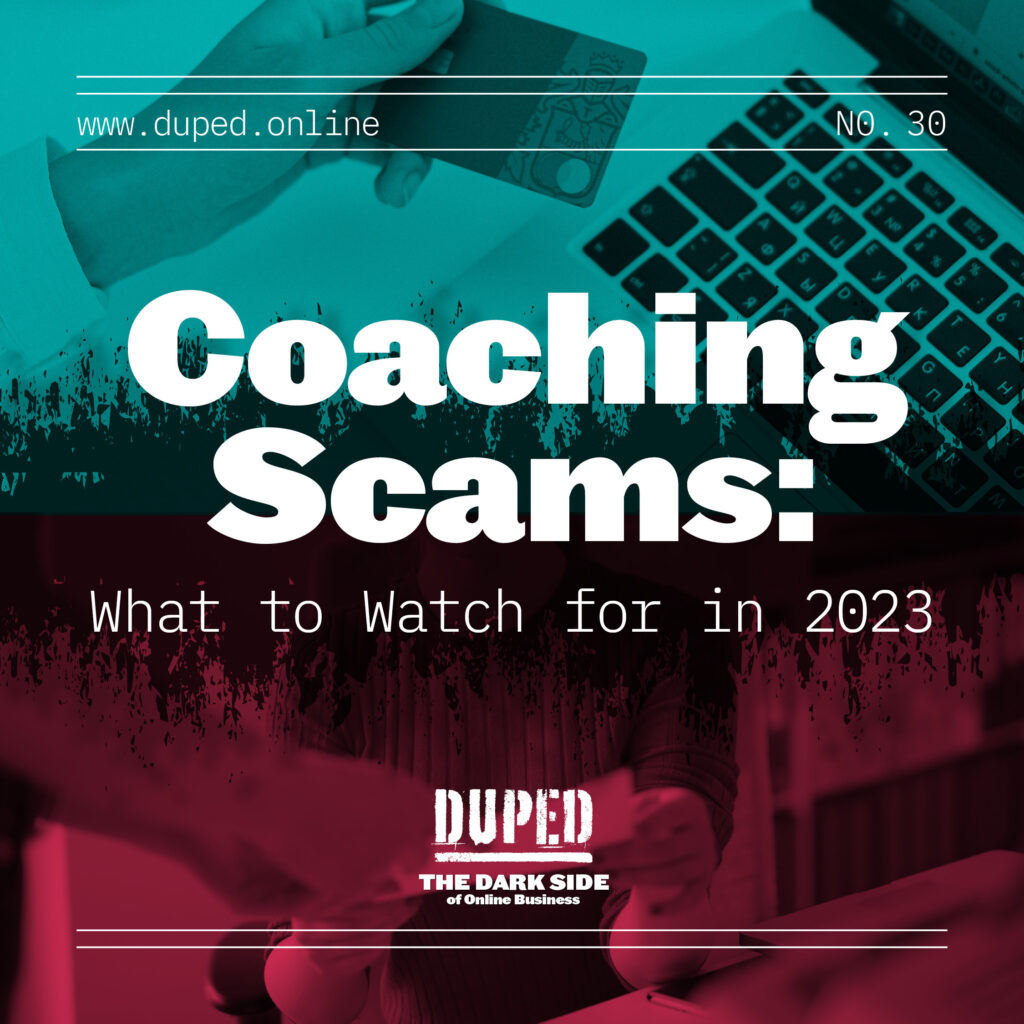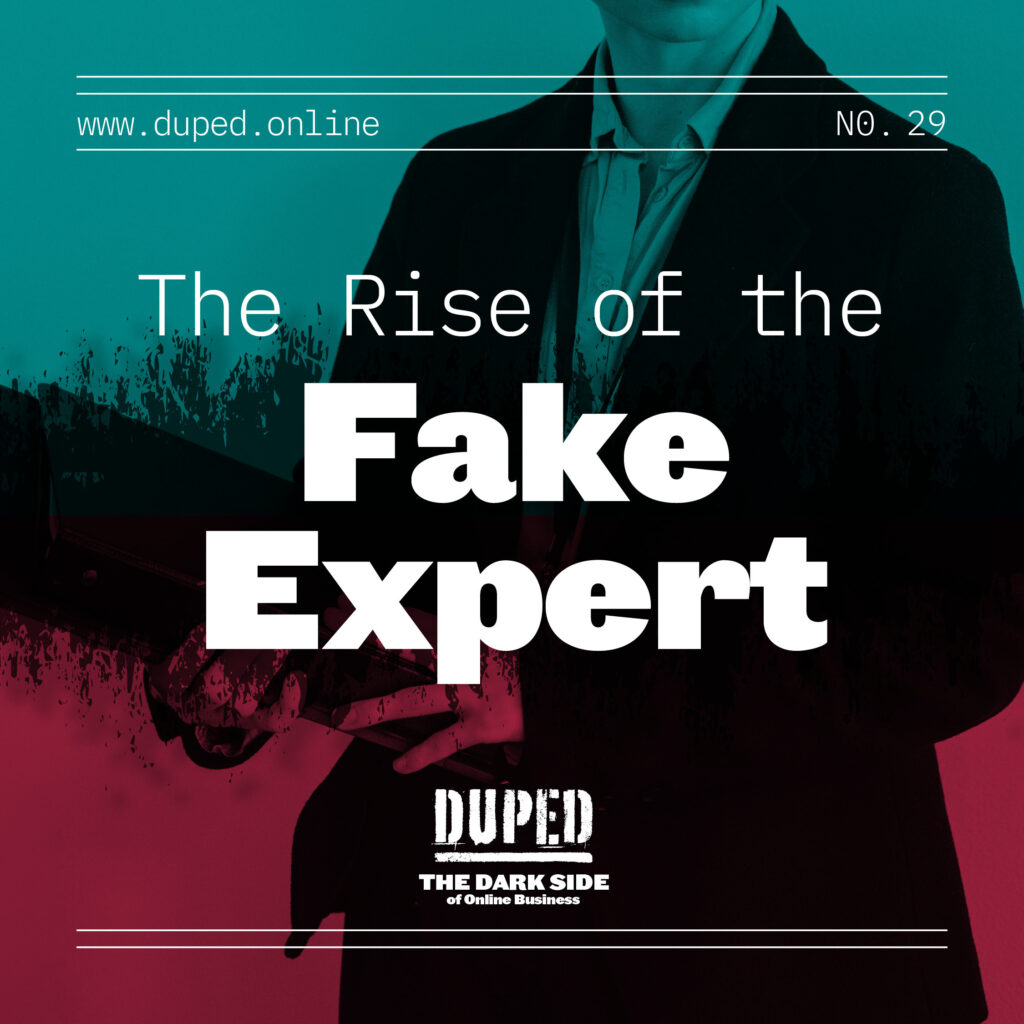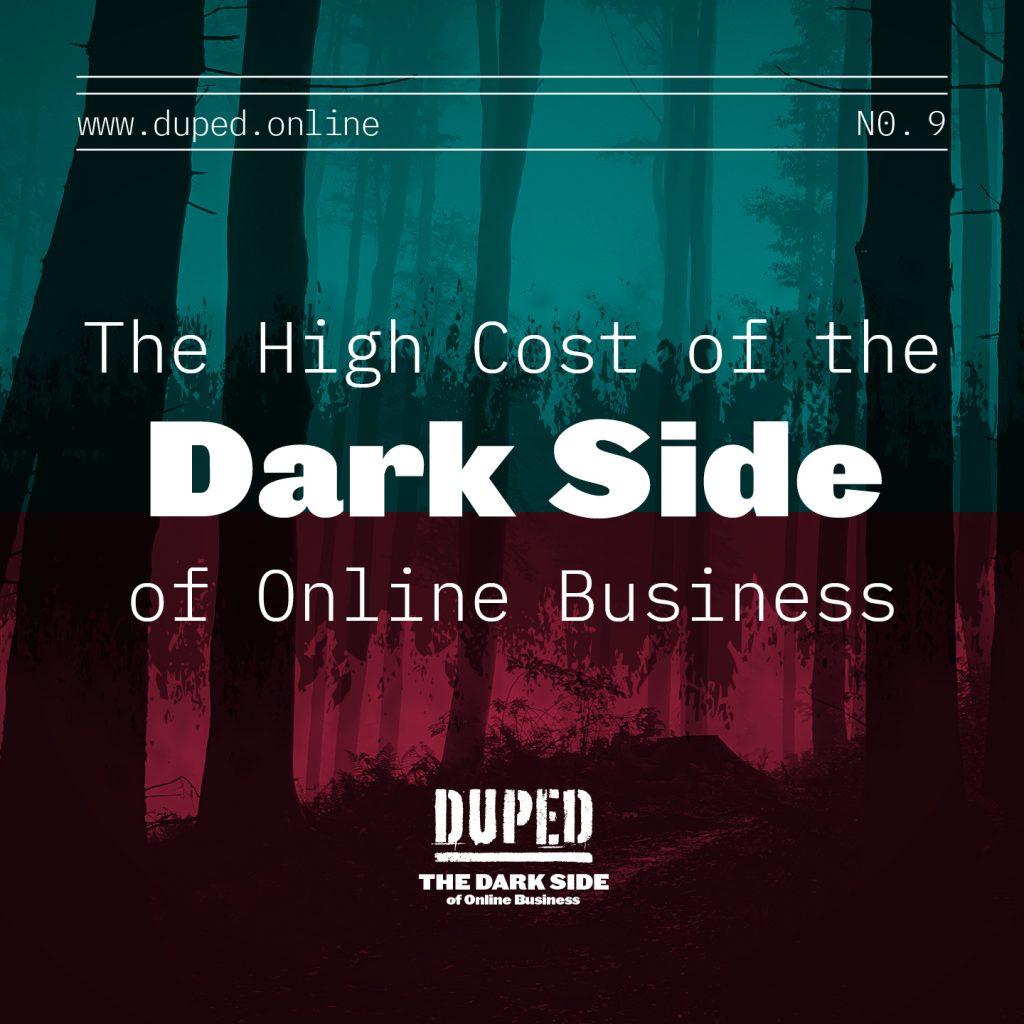
The High Cost of the Dark Side of Online Business

Throughout this season of Duped, we’ve talked about all the shenanigans of the online business world. From the bait and switch to bro marketing to the cult-like tactics that online businesses use to make the sale.
Every one of these tactics cost each of us time, energy and money.
But the dark side of online business has far graver consequences to both the individual business owner and the industry as a whole. That’s what we are breaking down in this episode of Duped along with our hope for the future of online business.
At what cost? Is the question I’ve had going through my mind as we recorded Duped. In each episode we’ve touched on the costs of the individual tactics, strategies, and general fuckery, in terms of time, energy and money wasted,
There’s a deeper price that we aren’t really thinking about or talking about. While that’s the conversation we want to have. Maggie and I don’t want to be complete Debbie Downers on this final episode of the season so we’ll also talk about hope and where we can go next as an industry.
First, I want to acknowledge and thank you, we realize that these episodes can be tough to listen to. You’ve probably had some feelings. Realizing the places where you’ve been Duped. Seeing how you might be using some of the tactics in your own business.
These conversations can be hard. But we’re so glad you’re open to them, willing to listen and to change. Because YOU are how we change online business for the better and more on that in a bit.
The Cost of Online Business as Usual to the Individual Business Owner
Outsourcing of Agency
I was listening to a podcast the other day and a woman was telling a story that I think every business owner could relate to. She was a member of a program and any time a problem cropped up in her business, she’d run to the Facebook Group so that the program leader could tell her how to solve it.
Not to brainstorm options or to figure out the best path forward based on the information and how she wants to handle it. Based on those options, she could then DECIDE what to do.
Nope, she wanted THE answer. The answer that the celebrity entrepreneur would gladly prescribe based on their model or process. The student should dutifully and unquestioningly implement which she then would report back the success to please the program leader.
On the extreme end of the spectrum, this dynamic fosters a co-dependent type of relationship where according to a 2017 study by Dr. Jessica Lampis and her colleagues a co-dependent relationship is not just about a drug or alcohol addiction anymore.
The definition has been extended to include “a specific relationship addiction characterized by preoccupation and extreme dependence—emotional, social and sometimes physical—on another person.”
Being codependent on a particular coach or consultant or program leader is very profitable for that business owner. It means that person will keep on investing more and more to get all the answers even if those answers aren’t customized to that person’s business.
On the less extreme end, online business encourages us to outsource our agency. Thinking that someone outside of us has all the ANSWERS and knows the right way (usually the cookie-cutter way) to build a business.
I’ve even had people ask me what I think their ethics should be because they were repeatedly taught that answers lie outside of themselves.
But this outsourcing of our agency, our ability to decide what’s best for us and our business leads us to even bigger costs to us as an individual business owner and that is…
Erosion of Self-Trust
Full-disclosure. I’m an enneagram 6. It takes me a long time to trust anyone including myself. 6s are always looking outside of themselves for solutions, seeking other people’s opinions and a healthy 6 can do that then trust themselves to make a decision.
What I’ve witnessed after talking to so many of you is that the dark side of online business eats away at our self-trust.
According to Psychology Today, self-trust is “having the conviction that you will be kind and respectful to yourself regardless of the outcome of your efforts.”
According to the same article what undermines self-trust is regret, self-blame, shame, and worry.
What we’ve seen in the past eight episodes are conditions that are ripe for undermining self-trust when we enroll in programs or quit programs and courses.
We’re fed a constant stream of messages like
- Make 7-figures (when your business isn’t even making a $100K yet)
- If I can do it, you can do it (even when this message leaves out all of their relevant experience and connection
- Being told it’s our fault, our mindset, we’re not implementing correctly
All of these messages make us question our ability to make the right decision and trust our own thoughts that we are on the right path.
Not only that, we are conditioned to not trust ourselves.
Some of you may be familiar with Bobbie Harro’s Cycle of Socialization. If you’re not already, it’s a model that explains how “we’re born into a specific set of social identities, and they predispose us to unequal roles in systems of oppression.”
The Cycle of Socialization explains how we’re socialized into those roles by power and structures of society. It starts with our families, then it’s reinforced by institutions and culture every step of the way.
Basically, we’re socialized to think and behave a certain way. For some of us that may be compliance or perfection. For others that may be self-hatred or guilt. Ultimately, we either stay stuck in this cycle upholding the status quo, or we break the cycle and go in what’s called a “direction for change”.
The Cycle of Socialization is designed for social justice work, but it’s been helpful for me to see how my identities (Maggie here) and the ones of my clients are shaped in this way resulting in biases, a lack of equity, and ultimately a lack of self-trust.
If we’re constantly told to be, do or act a certain way, when we don’t do that we’re fighting against the system.
In the context of online business, the problems we’ve talked about in this show mirror bigger societal ones, and are deeply rooted in systems of oppression. Like in episode seven when we talked about luxury lifestyle, it doesn’t happen in isolation, it’s rooted in capitalism.
For us to do the work of challenging that and opting out, we’re going to need to fight against our conditioning within online business, and at a cultural and institutional level. We’re not taught to trust ourselves because that keeps us stuck in the cycle of socialization.
Learning to trust yourself? That’s a radical act in a society that doesn’t want anyone to think for themselves. And believe me, the celebrity entrepreneurs, they’re 100% upholding these systems too as you not trusting yourself? It makes them richer.
Before we talk about the industry implications, I want to say that it’s not your fault. You were most likely marketed to in a predatory way that took advantage of your brain.
Industry Implications
People Trust Online Businesses Less
This is something that I wish we could do a study on but this is a hypothesis based on conversations I’ve had. When people have been burned repeatedly by programs and even service providers that overpromise and underdeliver, trust decreases. Can you really blame people?
I said in the Bro Marketing episode and I’ll say it again. We’ve been taught to market and sell like a timeshare salesperson and it erodes others’ trust in online businesses.
Lack of Innovation in the Industry
We talked about this in episode eight about the rob and duplicate culture but we can see the lack of innovation in online businesses every time we log into Instagram.
A few examples:
- Same old, same old promises
- Messaging that all sounds the same
- Stale business models with no innovation or creativity in people’s offers
The “Everyone Can be a Business Owner” Myth
This isn’t something that we touched on this season, but it’s worth mentioning here. So many of the big programs and course sell the dream of owning a business and being an entrepreneur
This type of marketing message has led to what Hartman, Spicer & Krabbe call the rise of the Veblenian entrepreneur (or the wantrepreneur).
According to that same article “this is entrepreneurship pursued primarily as a form of conspicuous consumption, and it is fundamentally different from the innovation-driven entrepreneurship that it resembles.”
The authors reveal that there’s a $10 Billion dollar entrepreneurship industry in the US that’s “focused on encouraging and supporting the pursuit of entrepreneurial opportunities by providing goods, services specifically for entrepreneurs.”
Think coaching, masterminds, courses and so on. These products are sold based on the notion that anyone can be a business owner and that’s just bs.
When I left my day job, I had lunch with one of my bosses and he flat out told me that he could never run his own business. He liked the safety (perceived safety) of having a job, the insurance benefits, and the fact that he wasn’t the one in charge of making money and he didn’t have to worry about sales.
Not everyone can or wants to be an entrepreneur. Sometimes our passions can be just passions and they don’t need to be monetized. Just like our personal stories don’t need to be monetized either.
It’s okay to keep your business as a side hustle or just keep it as a freaking hobby. For many people, employment can be just as filling (or more fulfilling) than running a business.
What Gives Us Hope That the Industry Can Change
It’s not all bad. There’s a lot of good, and here are just a few things that give us hope.
- You’re listening. You listened to this podcast, once you’ve seen what we’ve been talking about you can’t unsee it. You’re an informed consumer.
- You’re open to new ideas. Your willingness to engage with an incredibly nuanced conversation and make your own decisions.
- You’re opting out. Reviews and feedback that tell us you’re opting out of podcasts and email lists when you recognize these tactics.
- You’re taking back your agency. Stories about people getting into less than ideal fear-based or high-pressure situations and seeing them for what they are. They have the knowledge now to see what’s being done and to walk away.
- We’re having conversations. More and more public conversations about the problems in the industry, and people being more vocal about what they see that’s not working.
- We’re redefining the culture of advice. A greater understanding of how no one point of view or celebrity entrepreneur’s teachings are right for everyone and the willingness to slow down.
- We’re making good faith efforts. Behind-the-scenes conversations with people in the industry that are making a good faith effort to change. They know what they’re doing isn’t okay and they’re looking for alternatives.
- We’re seeing it with our clients. We both work a lot of people in this industry and they’re just not here for it. They’re committed to doing business in a way that’s better than usual, and learning how to spot this bullshit for what it is.
This is our final episode of Duped for the season. Maggie and I will be back for season two this fall, and back in a few weeks with a listener Q&A so send any questions you may have to us!
And for those of you who listened, here’s one of Maggie’s “shit we saw on the internet” from this week so you get the full visual. Why. Just WHY?
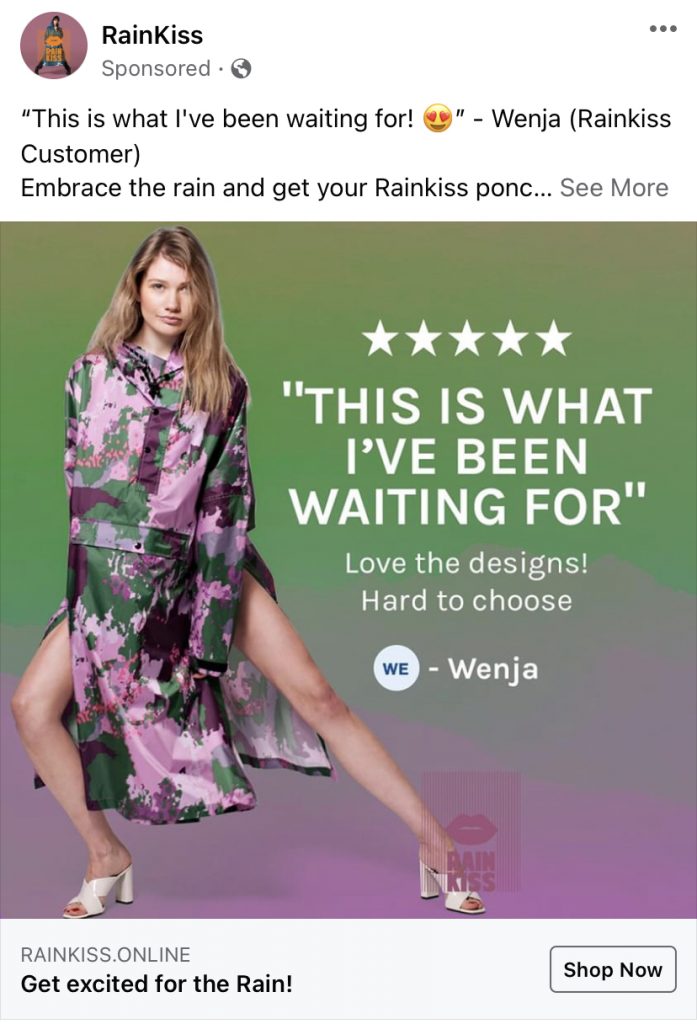
Links for this episode:
Join the

Patreon

for only $7/month and get a
monthly bonus episode,
behind-the-scenes content
and more.
